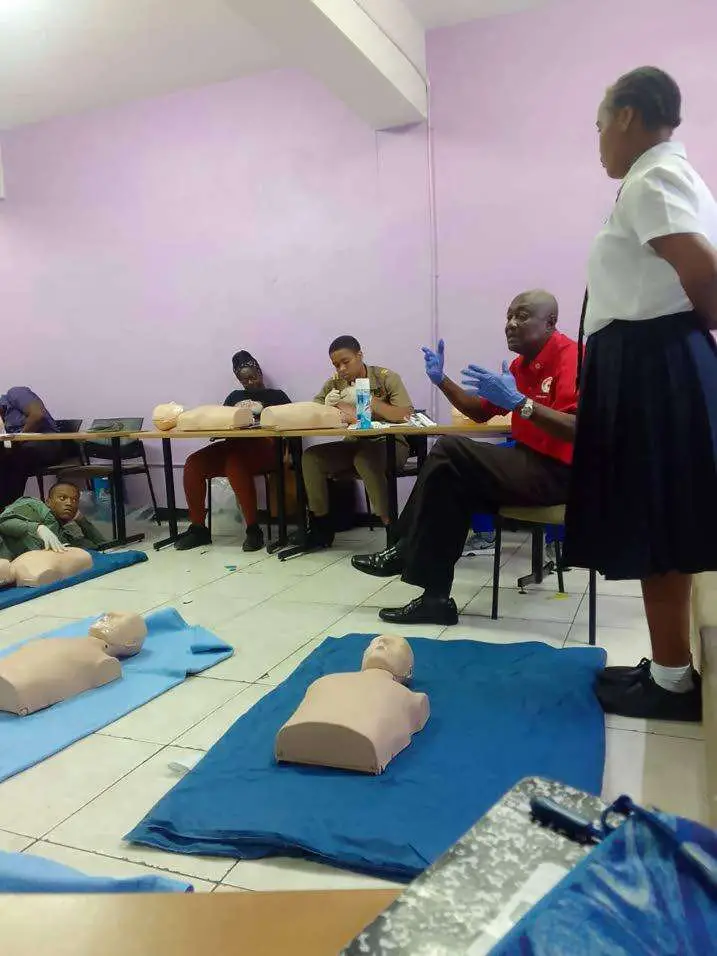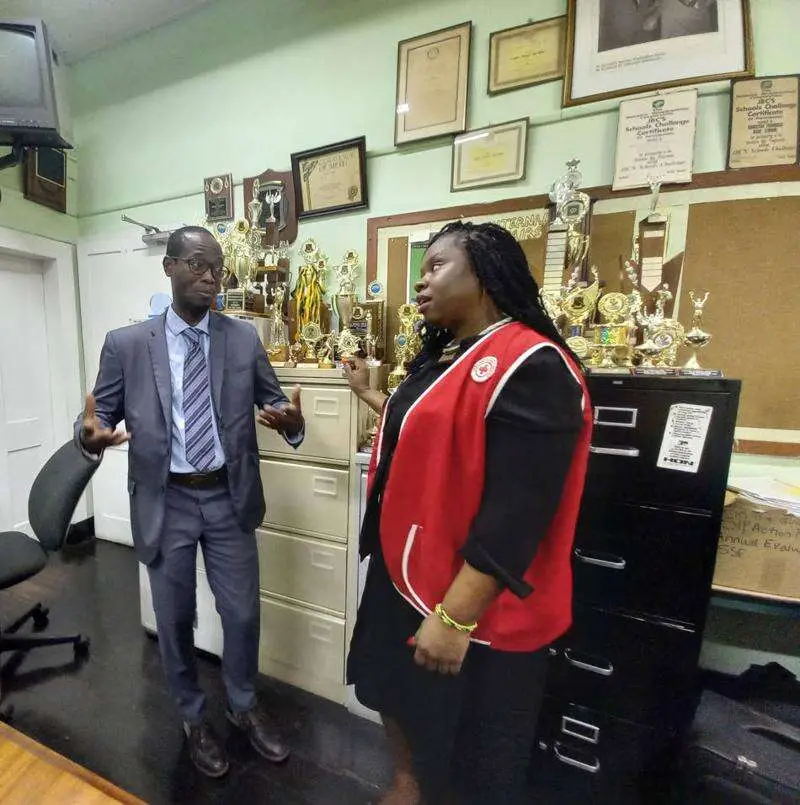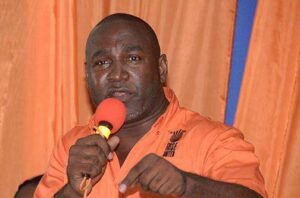
KT embraces first aid training from Red Cross
THE Jamaica Red Cross is conducting a three-day first aid course, which began on Tuesday, at the Kingston Technical High School (KT) to have staff and students ready to respond to emergencies.
The training session was prompted by the stabbing death of KT student Michion Campbell at the institution in September. Campbell was repeatedly stabbed in the neck and head by a 17-year-old female. She succumbed to her injuries and the student accused of the killing was subsequently arrested and charged with murder.
The course, which was sponsored by the Jamaica Red Cross, targeted 20 students and staff. Principal of KT, Maulton Campbell welcomed the initiative with open arms.
In an interview with the Jamaica Observer Campbell said, “I am very elated for this useful piece of training that is applicable, not only in our school but also in the homes and communities. It is training that can last a lifetime. We appreciate what Red Cross is doing with us and we intend to ensure that all our teachers are trained in first aid as well as members of our service clubs, cadets — and we want to extend it to parents as well. More teachers wanted to be a part of it. We hope that corporate Jamaica will jump on board because something like this, if they can sponsor it, this can take Jamaica in the right direction by saving lives.”

Stacy-Ann Jarrett, the Kingston and St Andrew director of Red Cross, shared that since the start of the course on Tuesday a lot of myths about first aid have been debunked. She said the main purpose of the training was to empower the participants with knowledge so they can be first responders in case of an accident or emergency.
“Usually, if people are trained appropriately and know what to do, that has been proven to save lives. One of the first things that touched me in the training was that nobody said they came because they had to come. The response I got from a cadet student was that he witnessed the stabbing of Michion and he did not know what to do. He said he does not ever want to be in a position where something happens and he can’t save his friend or his family’s life. If people knew what to do, less of them would run to get their phones. They would be able to act.”
Jarrett explained that the training showed participants how to preserve life, prevent a situation from worsening, and and how to promote recovery. At the end of the training on Wednesday participants who pass a test will be awarded an internationally recognised certificate.

“Since Tuesday we have done cardiopulmonary resuscitation or CPR. If somebody stops breathing there is a five-minute window in which you can bring somebody back. We taught them what to do if somebody is choking or if somebody is unconscious. We also will be looking at bleeding and how to bandage different types of injuries — whether a stab wound, a head wound or wounds from a car accident.
“A lot of people think they know first aid. For example, putting smelling salt at someone’s nose if they pass out is not something you should do; the person might have asthma and you make it worse. A lot of myths are being debunked and they are definitely enjoying the training.”
























